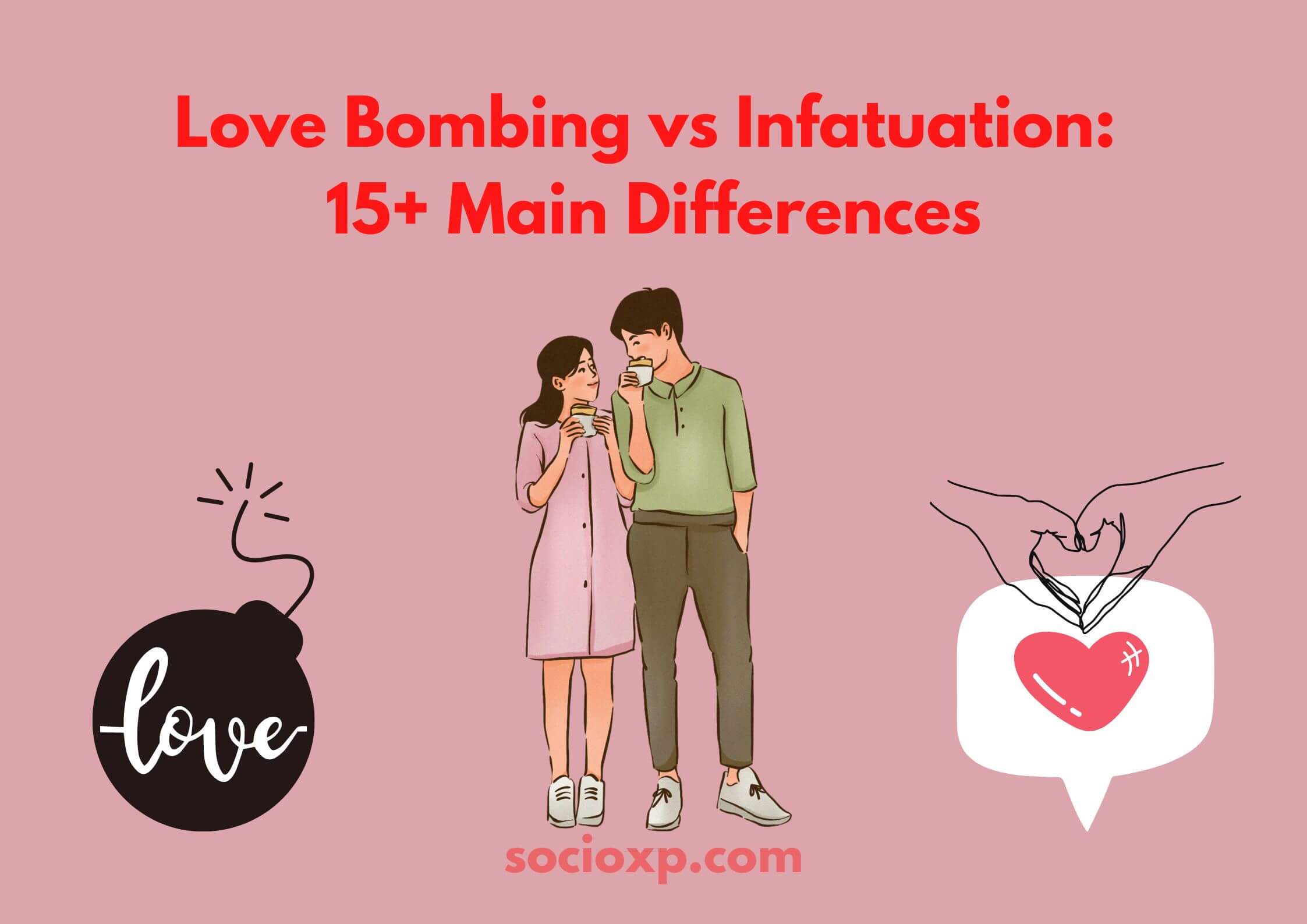Narcissistic Injury – Definition, Signs and Causes
What is Narcissistic Injury? It occurs when the narcissist feels that their image and ego have been hurt, damaged, or insulted. Now you may wonder, what could be the possible signs and causes of a narcissistic injury? How may you figure out that a narcissist has been wounded emotionally causing certain behavioral changes? Let us know that further.
Narcissists have low self-esteem and thus the most trivial incidents can cause them emotional damage. When their grandiose self-image is questioned, they may get furious and act in a certain manner. This is what a narcissistic injury may look like in general. Let us get into some details here below.

What is Narcissistic Injury?
When the false, exaggerated, and inflated self of the narcissist is threatened, this causes them a narcissistic injury. This threat may be real or may be imaginary. Through a narcissistic injury, the narcissist’s distorted reality is shaken and they are reminded of the fake and the illusionary image that they have made for themselves.
A narcissistic injury penetrates the shiny and sturdy imaginary armor that they have worn to keep their imaginary perfect selves from being disclosed. Once they sense that their fake image is in danger, they might do anything to save it. And in certain situations where they need to strongly defend, they may also use rage to dodge the situation. Thus narcissistic injury leads to narcissistic rage. They are two sides of the same coin.
Narcissistic injury in simple terms is psychological or emotional harm experienced by someone with narcissistic traits. Narcissistic injury can lead to intense feelings of shame, guilt, inadequacy, humiliation, and indignity which may trigger untamed defense mechanisms like narcissistic rage, violence, physical harm, and resentment.
The way narcissists react or respond to narcissistic injury is cruel. They may devalue that person and might mistreat them as if they are inhuman. Their behavior may cause lifelong trauma for the person who caused them narcissistic injury. That person may be no longer viewed as a living being and may be objectified as something useless and worthless.
This person or the incident hurt the narcissist’s ego thus they may have to face the narcissistic rage and project as a defense mechanism to their ego that has been fractured.
Narcissists are unable to showcase empathy for others nor do they feel remorse for others so they may resort to rage and vindictiveness when confronted. Narcissists have a goody-goody or a judgemental attitude thus connecting them to the beliefs of superiority, grandiosity, and greatness.
When their behavior is doubted, deep-rooted insecurities and doubts emerge from the facade, making them vulnerable. This situation enforces their urge to seek revenge against the imposed, harming their self-esteem causing emotional injury, and making them feel threatened.

What makes a Narcissist vulnerable to narcissistic injury?
Narcissists have an inflated sense of self-importance, which is a trait associated with people suffering from narcissistic personality, and this trait enforces vulnerability when exposed causing shame, emotional harm, and discomfort.
While dealing with negative feelings, the defense mechanism is unconsciously activated for them as it stems from disagreement and criticism. Coping with internal shame and overcoming their trauma, the narcissist may use these tactics just to get away from the reality of the situation.
How long does a Narcissistic Injury Last?
The duration or the length of narcissistic injury depends on the individual and the situation. It is circumstantial, yet some narcissists may face it in every unfavorable situation. Some incidents like a divorce, child custody, abandonment, or unemployment may hurt the narcissist for a longer period.
No matter what the situation may be, even without the intention of harming them, the smallest of inconvenient or harmful circumstances or issues may damage the narcissist’s ego causing emotional injury. Any damage to the narcissist’s facade may bring their attention to their deep-rooted self-beliefs causing long-lasting pain to them.
Signs of Narcissistic Injury
A narcissistic injury may look different for each narcissist, depending on the situation, relationship, and personality. While the reactions may vary, certain red flags are prevalent that indicate the injury. Being aware of these signs may protect you from dealing with the consequences when associated with such behavior.
Here are some signs of narcissistic injury,
Passive Aggressive Behavior
Being passive-aggressive means displaying anger but indirectly; and narcissists (generally covert)are the masters of this art. Passive aggression not only involves anger but also negative feelings of annoyance, irritation, and frustration.
A passive-aggressive behavior is more abusive, but they might not allow you to realize this. They may be emotionally wounded but they may strategize their behavioral patterns so wisely that even others might blame you for provoking them. Whereas in reality they are the culprit and making you hostile all the way.
Such narcissists create conflicts on a loop and lack intimacy, making the relationship toxic and unpredictable in a bad way. They may perceive emotional injury by displaying silent negative gestures like purposefully forgetting something or misplacing important documents.
Narcissistic Rage
Rage is an outburst of anger. It is a common outcome of emotions or an emotional response for someone with a narcissistic Personality Disorder. It is a reaction or response to a Narcissistic Injury.
Sometimes a narcissist just shuts down their emotional side and switches to an apathetic or emotionless individual who chooses violence, anger, and such negative emotions to let their internal conflict out. This internal conflict can happen when a narcissist is upset with something or hurt emotionally due to someone.
Thus narcissistic rage may have various forms that include taunting, bullying, smear campaigns, abuse, or yelling.
Playing the Victim
Narcissists often believe that they are the victims in almost all situations, and this belief stems from the victim mentality. They expect to be pitied when held accountable for their actions.

Silent treatment
Some narcissists, especially covert narcissists resort to isolation, shutting themselves down and employing silent treatment when they are hurt emotionally. This behavior is often intended to punish the person responsible for the wounds.
Denial
Denial is the first and foremost sign of narcissistic injury. Someone who might possess narcissistic traits may automatically deny the happening to save themselves from embarrassment and guilt and also to avoid being accountable. They may deny accusations even when slightly outed by others.
Manipulation
Narcissists are natural manipulators and they do this effortlessly. They may manipulate you smoothly despite being the culprit. They may beg for forgiveness, just to even things with you. Emotional manipulation is the go-to tool for many narcists when they are wounded.
Gaslighting
Imagine situations where you might be doubting your perception of truth along with losing your sanity just because someone else can convince you so and forbidding your truths and perceptions.
This is what is called gaslighting, which is a systematic, cyclical, and psychological brainwashing phenomenon used to create an aversion to the truth and reality of the matter or situation.
For instance, narcissists may use statements like,
- “You are not able to understand what I am trying to convey. It is you who is misunderstanding the situation.”
- “You may be the one overreacting in the relationship.”

Causes of Narcissistic Injury
A narcissistic injury stems from feelings of rejection, humiliation, insult, or doubt. Narcissists feel uncomfortable when their persona is questioned, and this results in them reacting fiercely with agitation. Emotional injuries may stem from the most trivial incidents for the narcissists which may be insignificant for others.
Here are some possible causes,
Denial for something they want badly
Be it a job, a partner they desire, or a luxury item that they may not be able to buy, and so on, such things can cause a narcissistic injury.
When a narcissist is denied something, they may become furious, manipulative, defensive, and also may become vengeful. They may also lash out with rage or seek revenge whenever they get a chance.
Being ignored
Narcissists crave attention, admiration, and validation in the form of a narcissistic supply. So when you ignore them, they might easily be wounded emotionally causing a narcissistic injury.
A break-up
Narcissists perceive breakups as the ultimate step to being abandoned. So when their partner leaves them they may get hurt. The injury may be deeper especially when they wish to continue the relationship with their partner but their partner refuses to stay in the relationship.
Criticism
Narcissists are just unable to bear criticism even if it comes from someone superior or it is for their own good. Criticism threatens their fake personality, causing emotional damage.
Losing Control
Control is what the narcissist desires the most. They wish to hold power over everything in their life. If they lose control over someone or some situation then this can cause a narcissistic injury.
Success or Victory of Other People
Narcissists cannot bear it when others succeed and overpower them. They may get jealous of other people receiving praise, recognition, and applause from others. They wish to be the center of attraction and thus other people’s successes and victories can also cause narcissistic injuries for them.
Conflict in a Conversation
Conversational conflict can result in a narcissistic injury as narcissists perceive these conflicts as differences that can cause doubts about their perceived fake image.
Final Thoughts
When you are the one being the victim of narcissistic injury, this whole thing or the situation may seem confusing, surprising, and scary to you as the signs of narcissistic injury are not obvious and the narcissist may start acting up out of the blue.
Thus recognizing the signs and causes of narcissistic injury is crucial, along with acknowledging yourself about narcissism and the different behaviors associated with it in depth.
When you have a narcissistic partner you may be well aware of all the troubles, trauma, and torture you may be getting into. Yet if you feel confused regarding their behavior, you may also consult a mental health expert or read more about such behaviors. You may also seek help from friends and family whom you can trust.
- How does a Narcissist respond to No Contact?: 10 Plausible reactions - November 6, 2025
- The Inverted Narcissist: Traits that Describe Them - November 6, 2025
- What is an Empathetic Narcissist?: Meaning, Traits, and Ways to Cope with Them - November 4, 2025


